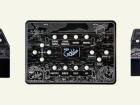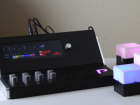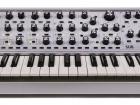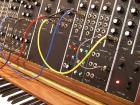5 Tips to Choosing a Synthesizer
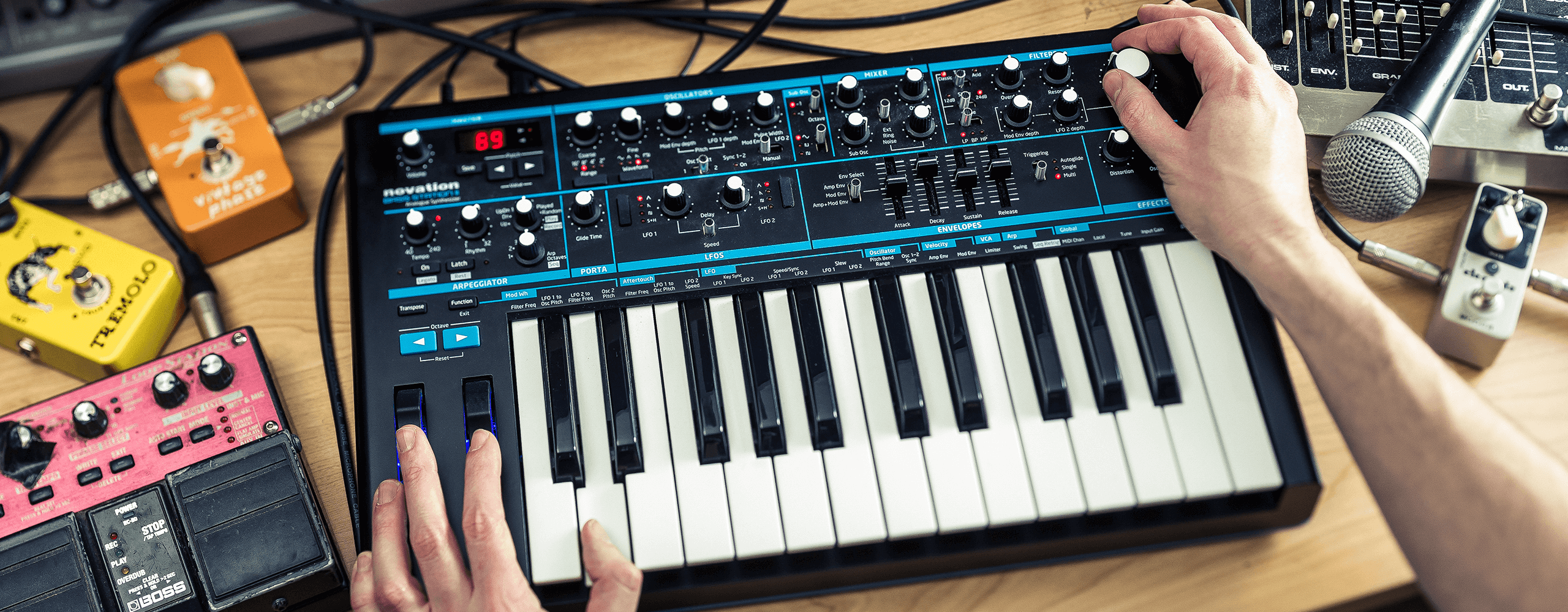
Post date:
Sponsored Post: Buying a new synthesizer, whether it is your first one ever, an upgrade for your existing one, or simply the latest addition to your collection, is exciting. However, considering the cost of synthesizers, it is also something that should ideally not be done on the spur of the moment, but only after careful consideration. Unless you are one of the very fortunate people to who money and space is not a factor, it is important to make the right decision when it comes to choosing your new synthesizer. It is easy to get caught up in the hype of a new product or make the mistake of thinking that something someone else is raving about will be just as suitable for yourself. Unfortunately, this can lead to buyers remorse if you are not careful, so check out these five tips to choosing a synthesizer if you are in any doubt about your purchase.
1. Make Sure That It Has All The Features You Need
Some synthesizers are designed to provide as many features as possible, while others are made for very specific sounds. Before buying a synthesizer, you should know what type of features you actually need and which ones the synths on offer has. While it is great if you can find a synth at a bargain price, it's no use saving that money if the synth doesn't have all the features you want as it would only mean you need to buy even more gear in the future. On the other hand, it also doesn't make sense to pay a fortune for a synth that is jam packed with features if you know for a fact that you won't be using half of them. Finding the balance between a good price and lots of features is a tricky one, but knowing exactly what you need and how important certain features are to you can already make a big difference.
2. Make Sure That You Buy From A Reputable Source
Synthesizers can be expensive, so finding a second-hand one that is selling for dirt cheap may tempt you to instantly part with your cash. However, being too hasty to snap up a good deal could result in a lot of grief and issues later on. Buying a new synthesizer is usually the more expensive option, but means that you have less to worry about in terms of quality and returns. Not all second-hand sellers are shady, of course, but taking the time to ensure that everything about the transaction and the synthesizer you are buying is above board is always a good idea. Fortunately, there are a couple of online shops, such as Musicshop.sg, that have brand new keyboards and synthesizers for sale. Be sure to check them out.
3. Don't Just Look At The Technical Specifications
A synthesizer is an instrument, which means that no matter how many functions it has or how good it sounds, you are not going to enjoy using it if you don't like the design or can't live with some of its quirks. Any synth can sound good on paper, but that doesn't always mean it is actually good once you start using it. If possible, try to get some hands-on time with the synth that you are interested in buying, otherwise listen to the feedback of others. Watching videos of other synth enthusiasts using the hardware that you are interested in can also provide you with valuable feedback on their pros and cons. Although modern synths have far less quirks than their vintage counterparts, it is still important to know what to expect from the synth you are choosing.
4. Make Sure That You Will Be Able To Play It
Modern synthesizers tend to be a lot less complicated and finicky than their vintage counterparts, but some of them are still harder to master than others. If you are a complete novice who wants to buy your very first synth, then it makes sense to opt for something that is easy to learn and play on without frustrating or discouraging you. On the other hand, if you are a veteran player, then you will probably want to opt for something that gives you more freedom to create your own sound instead of restricting you in terms of what is possible. There is nothing wrong with buying an expensive and feature packed synth if you can afford it, but it won't help you if you don't have the patience and dedication to master it. This is also why it is important to pick a synth that has an interface that you will feel comfortable using or can at least learn to live with.
5. Is It Compatible With Your Current Setup?
Compatibility is another important thing to consider when buying a new synthesizer. This is less of an issue if it is your first synth, but even then you would ideally want something that can be used on its own without having to invest in other expensive hardware as well. It's no use buying a synth that requires you to connect it to a DAW and speakers for it to work if all you have is an ancient laptop and terrible headphones. Buying a new synth that would require you to upgrade your entire existing setup to make use of it might also not be such a good idea, depending on your budget of course.
Conclusion
Let us know in the comments below or on the forum what tips you wish you knew when you bought your first synthesizer or made a synth purchase that you later regretted. What is the best advice that you have ever received when it comes to buying a new synth?
Disclaimer: This article is a sponsored post.
